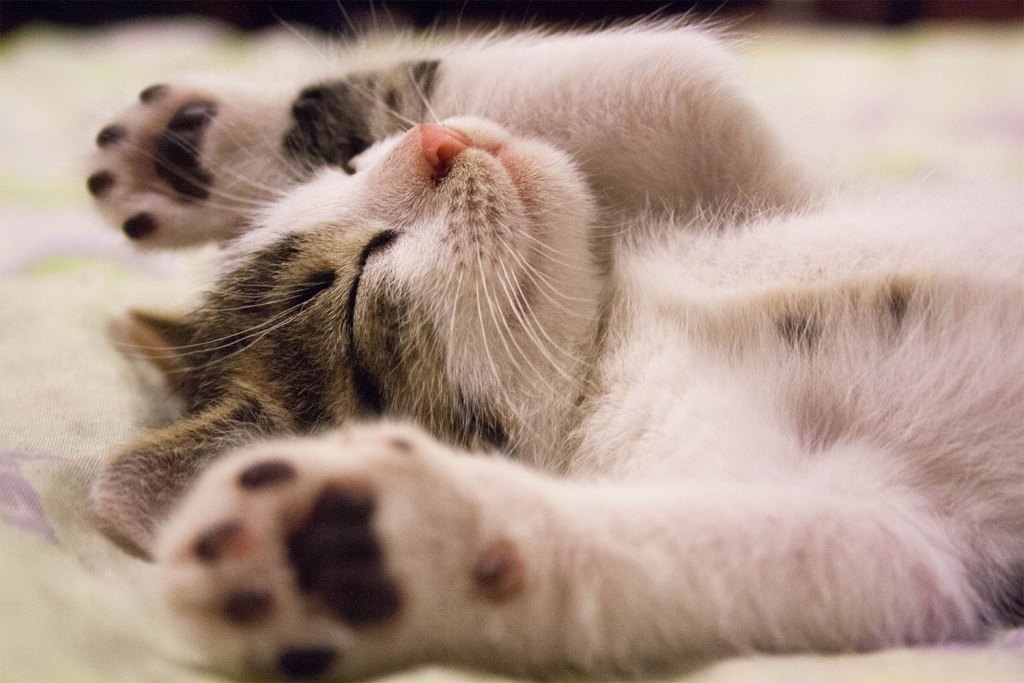Have you ever wondered why your beloved cat sometimes twitches or shakes while snoozing? It's a common sight, but what does it mean? In this article, we'll break down the reasons behind this quirky behavior and how you can ensure your feline friend stays happy and healthy.
Why Do Cats Shake While Sleeping?
Dreaming Just Like Us
Cats, like humans, dream during their sleep. They go through different sleep stages, including one called REM (Rapid Eye Movement) sleep. It's during this REM phase that dreams happen. Your cat's brain gets super active, but their body stays still to prevent them from acting out those dreams. Sometimes, though, a few signals escape this body lockdown, causing the shaking or twitching you see.
Other Reasons Your Cat Might Shake While Sleeping:
- Pain or Discomfort: If your cat is dealing with pain or discomfort, they might shake as a way to handle it.
- Feeling Chilly: When your kitty gets cold, they might shake to warm up.
- Allergies: Allergies can trigger shaking as a response to an allergic reaction.
- Unwanted Guests (Parasites): Pesky parasites like fleas and ticks can make your cat's skin itchy and provoke some shaking.
- Underlying Health Issues: Conditions like low blood sugar (hypoglycemia), an overactive thyroid (hyperthyroidism), or neurological troubles can also lead to shaking in cats.
Understanding If Your Cat's Shaking Is Normal
When you notice your cat shaking in their sleep, keep a close eye on their behavior. If they're also panting, drooling, struggling to breathe, or looking restless, it's time to consult your vet to rule out any health problems.
But if the shaking is mild, and your cat acts normally otherwise, you probably don't need to worry. Here's how to figure it out:
- Check the Shaking's Severity: If it's mild and brief, it's usually nothing to fret over. But if it's severe or lasts a long time, consult your vet.
- Watch for Extra Symptoms: Look for signs like panting, drooling, or agitation. If they accompany the shaking, consult your vet.
- Monitor Overall Behavior: As long as your cat eats, drinks, plays, and uses their litter box as usual, the shaking is probably harmless. Yet, if their behavior changes, it's vet time.
What to Do If You're Concerned About Your Cat's Shaking
If you're uneasy about your cat's nighttime tremors, set up a vet appointment. The vet can do a check-up and necessary tests to find any hidden medical issues.
If no health problems are found, here's how to help your cat:
- Ensure Comfort: Make their sleeping spot warm and comfy with a soft bed, heating pad, or electric blanket.
- Reduce Stress: Create a peaceful environment for your cat to relax. Consider using pheromone diffusers or sprays to ease stress.
- Keep Their Skin Healthy: Regular grooming and preventing parasites can keep their skin happy and reduce the need for scratching.
- Feed a Balanced Diet: Good nutrition contributes to their overall well-being.
By giving your kitty the care and attention they need, most cats that shake during sleep can enjoy a happy, healthy life.
Related Articles:


Comments